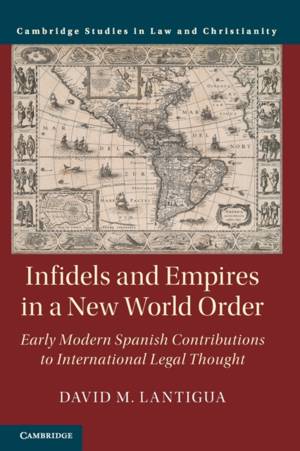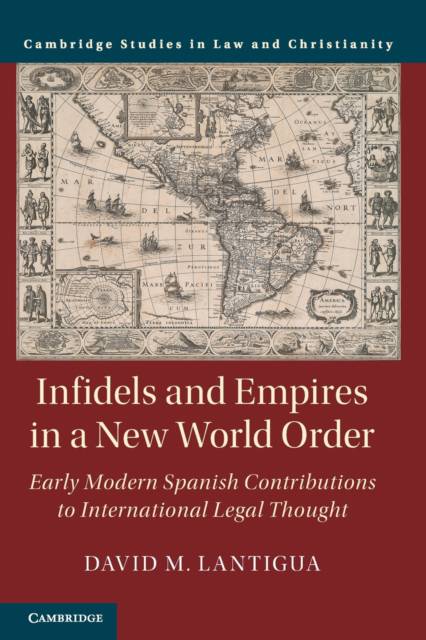
Bedankt voor het vertrouwen het afgelopen jaar! Om jou te bedanken bieden we GRATIS verzending (in België) aan op alles gedurende de hele maand januari.
- Afhalen na 1 uur in een winkel met voorraad
- In januari gratis thuislevering in België
- Ruim aanbod met 7 miljoen producten
Bedankt voor het vertrouwen het afgelopen jaar! Om jou te bedanken bieden we GRATIS verzending (in België) aan op alles gedurende de hele maand januari.
- Afhalen na 1 uur in een winkel met voorraad
- In januari gratis thuislevering in België
- Ruim aanbod met 7 miljoen producten
Zoeken
Infidels and Empires in a New World Order
Early Modern Spanish Contributions to International Legal Thought
David M Lantigua
€ 72,45
+ 144 punten
Omschrijving
Before international relations in the West, there were Christian-infidel relations. Infidels and Empires in a New World Order decenters the dominant story of international relations beginning with Westphalia in 1648 by looking a century earlier to the Spanish imperial debate at Valladolid addressing the conversion of native peoples of the Americas. In addition to telling this crucial yet overlooked story from the colonial margins of Western Europe, this book examines the Anglo-Iberian Atlantic to consider how the ambivalent status of the infidel other under natural law and the law of nations culminating at Valladolid shaped subsequent international relations in explicit but mostly obscure ways. From Hernán Cortés to Samuel Purchas, and Bartolomé de las Casas to New England Puritans, a host of unconventional colonial figures enter into conversation with Francisco de Vitoria, Hugo Grotius, and John Locke to reveal astonishing religious continuities and dissonances in early modern international legal thought with important implications for contemporary global society.
Specificaties
Betrokkenen
- Auteur(s):
- Uitgeverij:
Inhoud
- Aantal bladzijden:
- 374
- Taal:
- Engels
- Reeks:
Eigenschappen
- Productcode (EAN):
- 9781108735575
- Verschijningsdatum:
- 12/08/2021
- Uitvoering:
- Paperback
- Formaat:
- Trade paperback (VS)
- Afmetingen:
- 152 mm x 229 mm
- Gewicht:
- 498 g

Alleen bij Standaard Boekhandel
+ 144 punten op je klantenkaart van Standaard Boekhandel
Beoordelingen
We publiceren alleen reviews die voldoen aan de voorwaarden voor reviews. Bekijk onze voorwaarden voor reviews.









